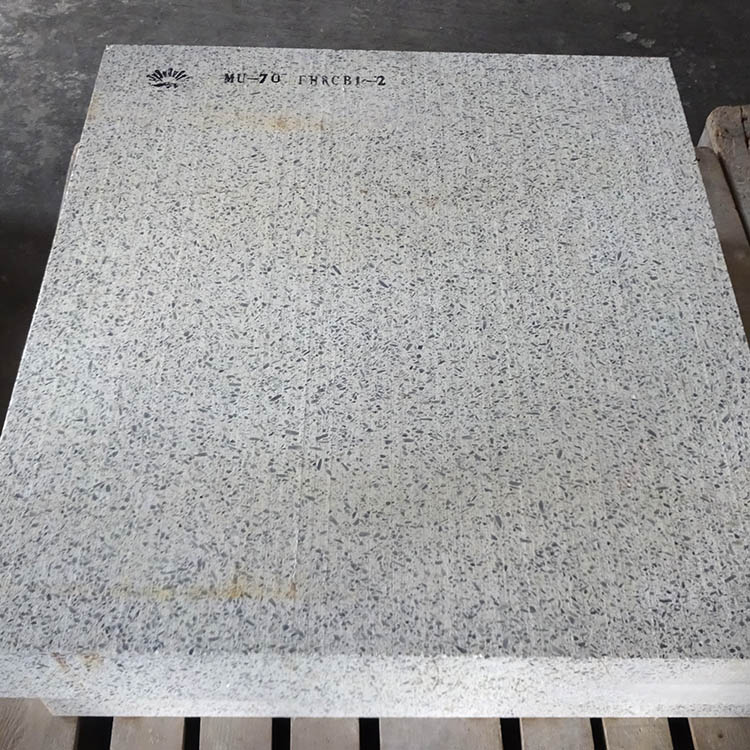
In industrial production, especially in high - temperature industries such as glass manufacturing, the demand for high - performance refractory materials is crucial. Traditional refractory materials often face issues like poor thermal shock resistance, low corrosion resistance, and short service life. These problems can lead to increased production costs, frequent equipment maintenance, and even production interruptions. For example, in a glass factory, if the refractory lining of a melting furnace fails prematurely, it may cause a halt in the production line, resulting in significant economic losses.
Sintered mullite bricks are high - alumina refractory products with mullite as the main crystalline phase. They are made from synthetic mullite clinker and high - alumina bauxite clinker. With a chemical composition typically containing over 70% alumina (Al₂O₃), these bricks possess excellent physical and chemical properties. Their bulk density is around 2.6 - 2.8 g/cm³, and the apparent porosity is less than 20%, which provides a solid foundation for their outstanding performance.

The choice of raw materials for sintered mullite bricks is a key factor in their performance. Synthetic mullite clinker has a uniform crystal structure and high purity, which endows the bricks with high strength and stability. High - alumina bauxite clinker, on the other hand, provides additional alumina content, enhancing the refractory and corrosion - resistant properties of the bricks. Compared with other raw materials, these two clinkers can better withstand high - temperature environments and chemical corrosion, reducing the risk of structural damage during long - term use.
Sintered mullite bricks are fired at temperatures above 1600°C. This high - temperature firing process further strengthens the crystal structure of the bricks, improving their density and mechanical properties. During the firing process, the raw materials undergo a series of physical and chemical reactions, forming a stable mullite crystal phase. This process also eliminates internal stress and impurities in the bricks, making them more resistant to thermal shock and abrasion. The high - temperature firing ensures that the bricks can maintain their shape and performance even in extremely harsh industrial environments.
In the glass industry, sintered mullite bricks have been widely used. For instance, in a large - scale glass melting furnace in Europe, the original refractory bricks had a service life of only about 1 - 2 years. After replacing them with sintered mullite bricks, the service life was extended to more than 5 years. This not only reduced the frequency of furnace repairs but also increased the production efficiency of the glass factory. Another case is a glass container manufacturing plant in Asia. By using sintered mullite bricks in the regenerator and melting zone of the furnace, the energy consumption was reduced by about 15% due to the better insulation performance of the bricks.
.jpg)
Sintered mullite bricks, with their excellent performance and wide range of applications, are an ideal choice for industrial production, especially in the glass industry. If you are still considering the right refractory materials for your production, we invite you to learn more about our sintered mullite bricks. You can contact our professional sales team at [Contact Email] or request a free sample to test the performance of our products in your actual production environment. Don't miss this opportunity to improve your production efficiency and reduce costs!
Contact us today at [Contact Email] to learn more about our sintered mullite bricks or request a free sample. Let us help you solve your refractory material problems!

